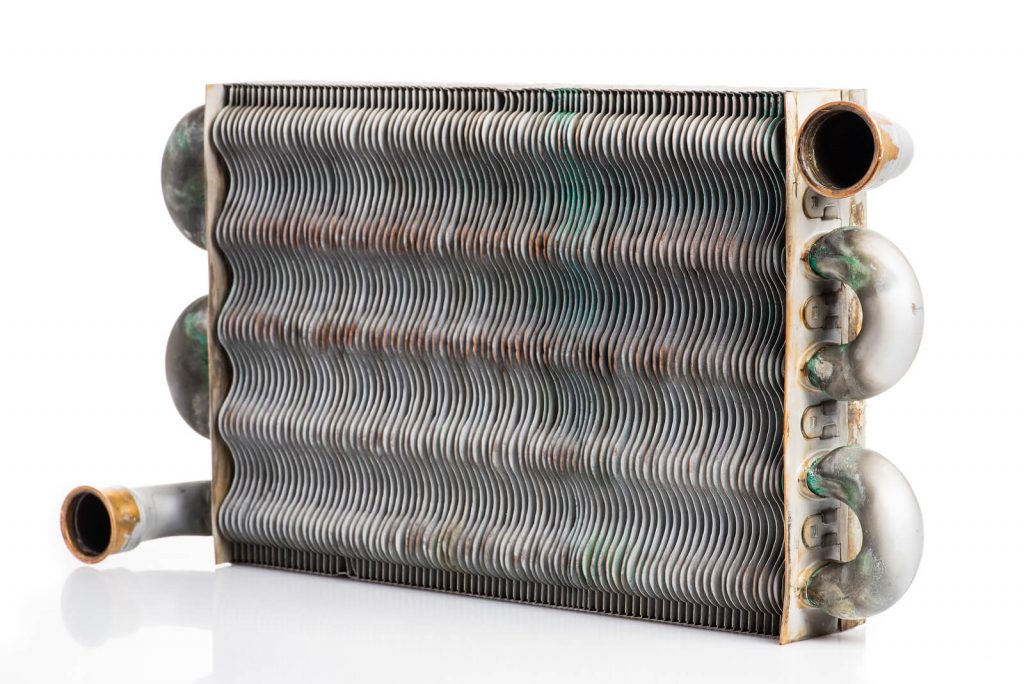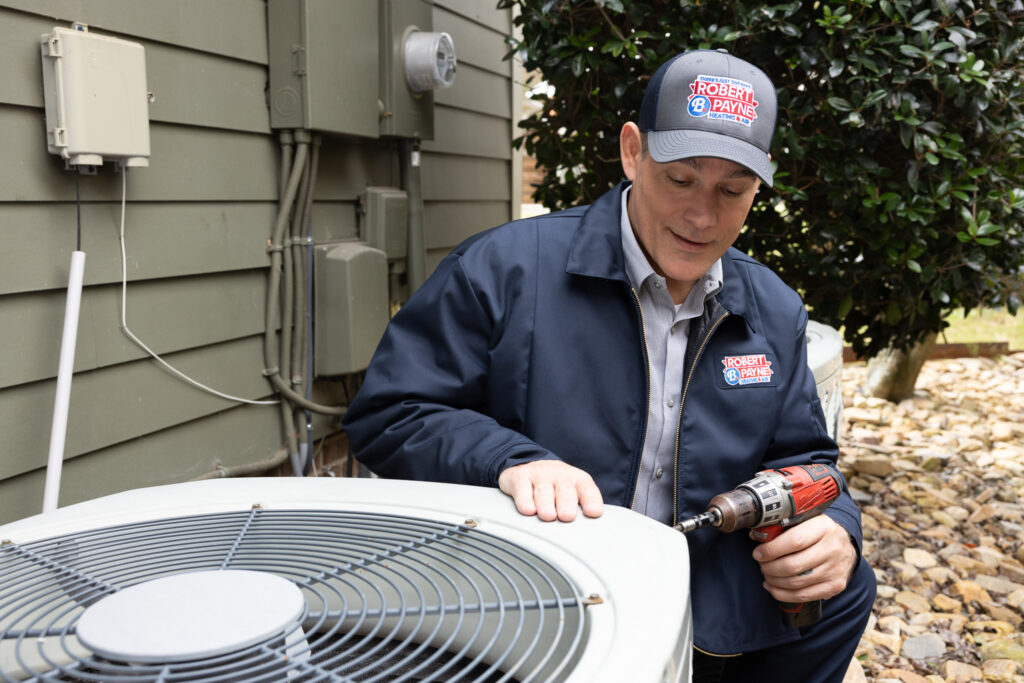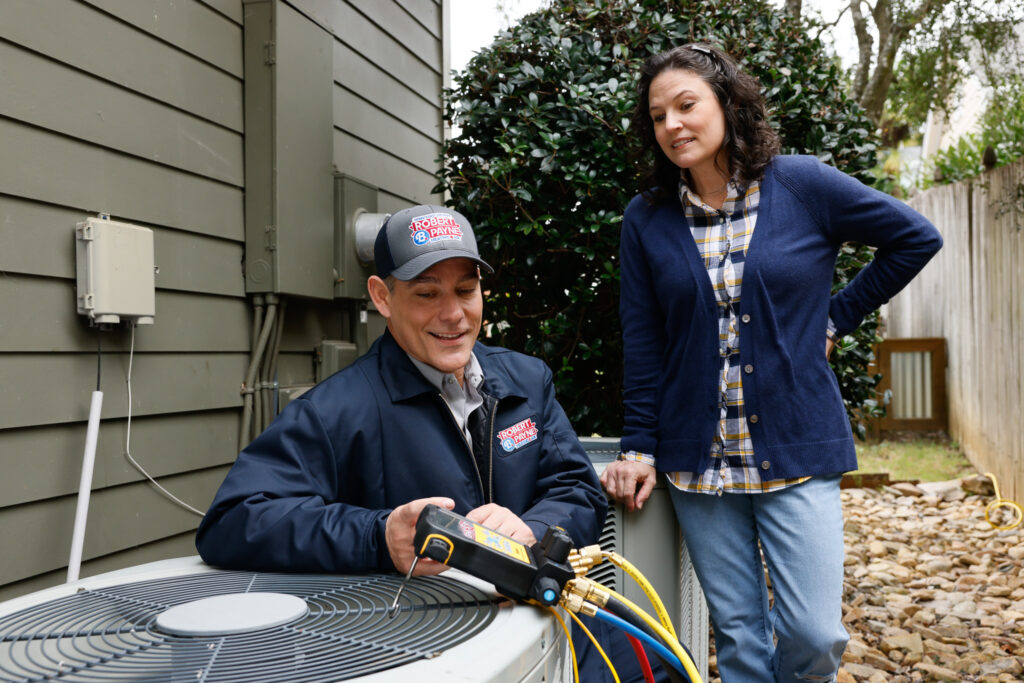Your home’s heat source is extremely important to maintain – especially in times of cold weather. In order to keep your furnace running smoothly, you will need to stay committed to a regular maintenance schedule and be aware of common problems that furnaces face. One typical furnace issue that many homeowners experience is a cracked heat exchanger.

What does the heat exchanger do?
The heat exchanger is a component within your furnace that heats up the air within the system. The heat exchanger is aptly named – it collects air through the ventilation system and exchanges it to heat with the help of the furnace burners.
Cracks in the heat exchanger are a serious problem and one that should not be ignored – both for the safety of your home and for the longevity of your furnace.
Signs of a cracked heat exchanger
If you suspect you might have a crack in the heat exchanger, you will likely notice one or several of these “symptoms”:
- Soot or residue buildup inside the furnace. This is a telltale sign that the furnace isn’t burning cleanly. The heat exchanger is a driving force behind the efficiency and effectiveness of your furnace system. If you notice soot inside the furnace, don’t delay in having the heat exchanger inspected.
- Strong odors. Faulty heat exchangers can often cause strong, unpleasant odors caused by a buildup of formaldehyde. These odors can also lead to headaches if the problem is left unattended. If you notice a foul smell coming from your furnace, call in a professional right away to prevent health and safety hazards.
- External signs of wear and tear. Corrosion, residue, and overall signs of aging are obvious signs that something isn’t quite right within your furnace system. If you start noticing increased external signs of wear and tear, have an HVAC professional check the internal components of the furnace – including the heat exchanger.
Furnace repair in Fredericksburg
Heat exchangers are an integral part of the furnace, and it’s extremely important to make sure they stay well maintained and working efficiently. Along with causing headaches and foul smells, a broken heat exchanger can also lead to more dire circumstances such as fires and deadly carbon monoxide poisoning.
If you think you might have a problem within your furnace, don’t hesitate to contact Robert B. Payne To schedule an appointment, send us a message or call 540-373-5876.







